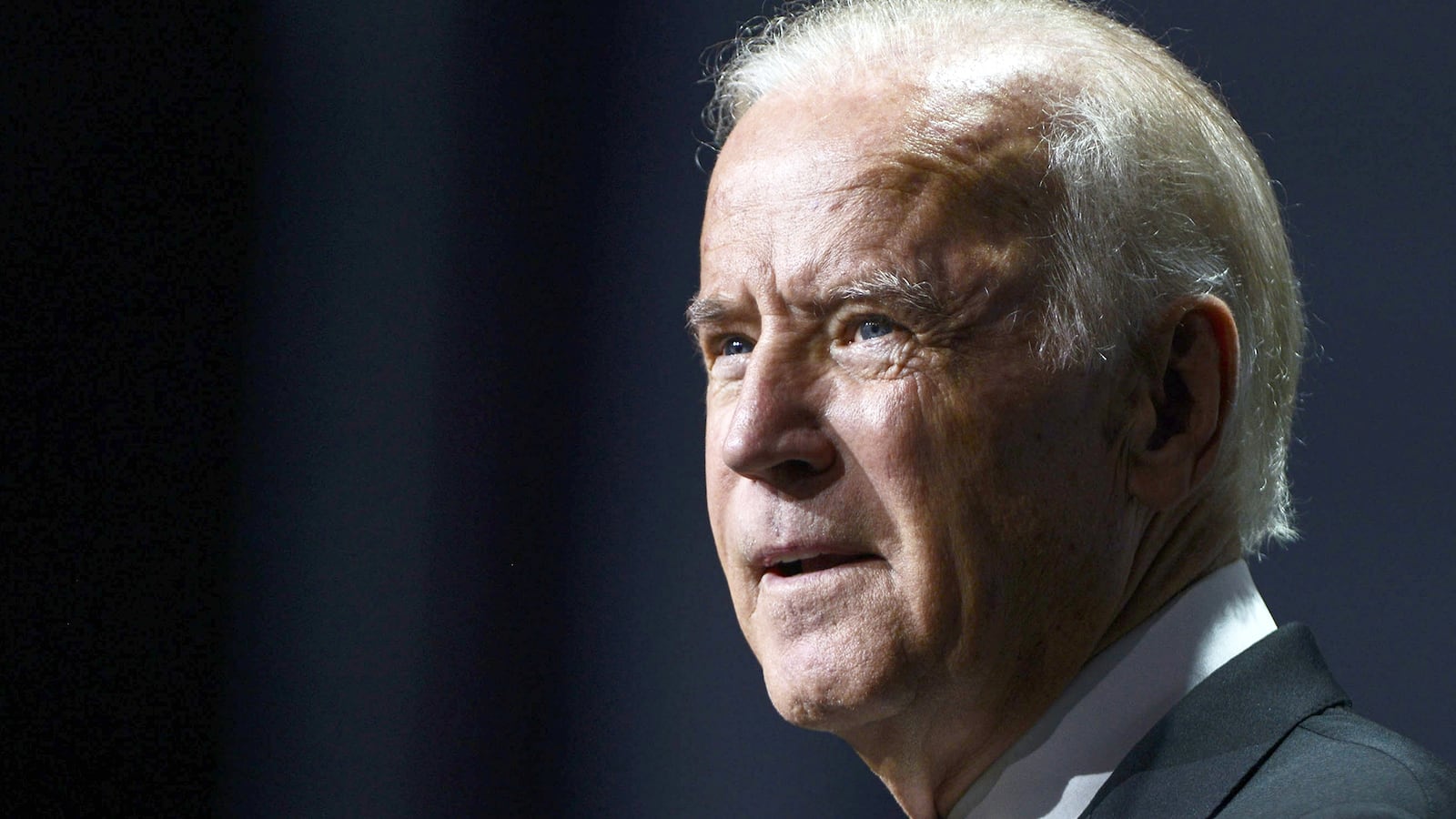Joe Biden insists that congressional Republicans will work with him once he’s elected president but no one, let alone those who worked with Biden in the last administration, actually believes him.
The former vice president’s latest promise of a forthcoming wave of bipartisan cooperation came on Monday night, when he told a crowd of fundraisers in Washington D.C. that he believed that when Donald Trump left office, GOP lawmakers would see the error of their ways. “[T]hese folks know better,” he explained. “They know this isn’t what they’re supposed to be doing.”
The line echoed comments that Biden reflects a strategy he’s adopted to appeal to voters as a throwback to a less divisive era and is based on the belief that the rest of the political establishment will join him there.
But veterans of the Obama administration say that Biden is either being naive or is willfully selling voters on a political fairytale.
“Fuck no,” one senior Obama aide said when asked if Republicans would be willing to work with a hypothetical President Biden.
Those who have worked with Biden stress that he is, in his heart, an institutionalist who believes that political progress is often achieved through difficult legislative compromises. His career in the Senate and as vice president is dotted with those deals, from the crime bill of the mid '90s to budget and tax accords hashed out with the most powerful Republican in the Senate, Mitch McConnell.
But for many Obama veterans, the idea that such an approach is still possible, let alone worth replicating, is beyond comprehension. After all, they spent years in the administration insisting that the GOP’s “fever” would eventually break—only to discover they were wrong.
“Right on,” Ben Labolt, Obama’s 2012 campaign press secretary, said sarcastically of Biden’s call to renew bipartisan cooperation. “Mitch McConnell and [Rep.] Mark Meadows will rush to form the Woke Caucus. And Nelson Rockefeller will be revived from his grave."
Biden’s strategy of touting his ability to cooperate with Republicans is derived from the belief that voters have a fundamentally different mindset about how politics should work than the party operatives who wail away on Twitter.
Biden’s campaign declined to comment, but pointed to a recent Quinnipiac Poll that asked respondents if “all other things are equal, would you prefer a candidate that will mostly work with Republicans or will mostly stand up to Republicans?” According to the survey, 52 percent of Democrats said they’d prefer a candidate who works with Republicans, while 39 percent who said they’d rather have a candidate who stands up to the GOP.
Biden is certainly distinguishing himself by playing up his bipartisan proclivities. Many of his closest 2020 rivals, notably, have taken a diametrically different approach. Sen. Bernie Sanders (I-VT), launching an indirect dig at Biden, said there should be “no middle ground” when crafting progressive policies, while Sen. Elizabeth Warren (D-MA) has routinely criticized “extremist Republican lawmakers” over issues like abortion rights. Others have talked about changing the rules of the Senate or the composition of the courts in order to confront Republican obstructionism more aggressively.
Though he is standing out for being more docile, the former VP’s strategy is not without risks. The legislative collaborations that Biden is best known for are not particularly popular among Democratic activists. And the deals he hashed out with McConnell—first to extend the Bush era tax cuts in exchange for stimulative tax measures, the second to extend many of those tax cuts even further while paving the way for large spending cuts—are often regarded as progressive low points of the Obama era; so much so that, to this day, Senate Republicans revel in them.
“If Biden were prepared to negotiate like he did during the fiscal cliff and the Bush tax cut extensions, where Republicans basically got everything we wanted and he got a tiny bit, I’m sure there would be deals to get done,” said a senior Senate leadership aide.
Jim Messina, who managed Obama’s successful 2012 campaign, suggested that Biden, in an attempt to reach a wider audience, risked hurting himself in the primary where insistence that Republicans will have a post-Trump epiphany would “be met with great skepticism given Republican’s eight-year obstruction of Obama.” Indeed, for many Democrats, Trump is not an agent of partisan-minded gridlock so much as the logical outcome of the GOP’s years-long march in that direction. In particular, those who worked on judicial nominations during the Obama years said that Biden’s pledge to bring the parties together is painfully divorced from a reality that he himself experienced.
“Republicans are beyond senseless when it comes to judges, and it has nothing to do with Trump. Their unprecedented obstruction of Obama's nominees started in January 2009 and ended with blocking Merrick Garland for the Supreme Court,” said Chris Kang, who served as Deputy Counsel and Deputy Assistant to Obama. “They blocked nominees whom they originally recommended themselves… and in Obama's last two years, they confirmed the fewest circuit judges since the 1800s. Democrats need to recognize that there are no ‘good old days’ to return to on judges.”
On Capitol Hill Tuesday, Democratic lawmakers largely ducked Biden’s remarks, or treated them with a level of sarcasm that made it difficult to interpret how they truly felt.
“I hope he’s right,” said Sen. Chirs Murphy (D-CT). “I don’t want to be in the Senate long-term if there’s not a way for both parties to work together.”
But those who have since left the Hill since the end of the Obama administration were not nearly as reserved.
"It’s either delusional or dishonest,” said Adam Jentleson, who served as Senate Minority Leader Harry Reid’s deputy chief of staff during the last two years of the Obama administration. “Republicans reaped enormous gains from their obstruction, like securing the balance of the Supreme Court for a generation or more. They know obstruction works and they will eat Biden’s lunch while he reminisces about the good old days.”







